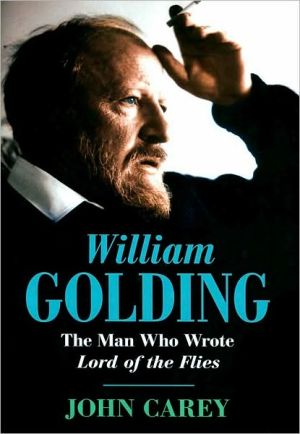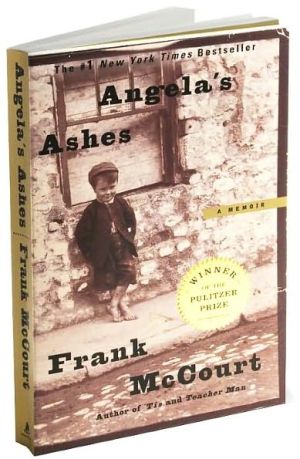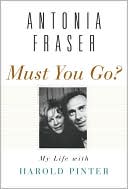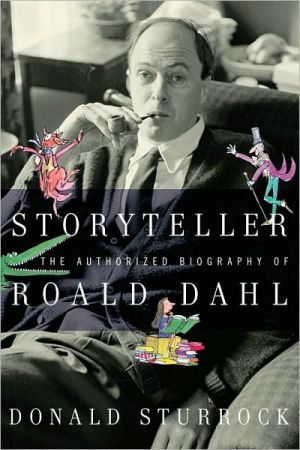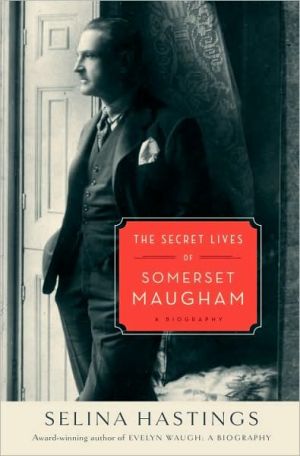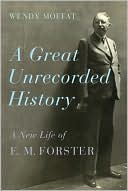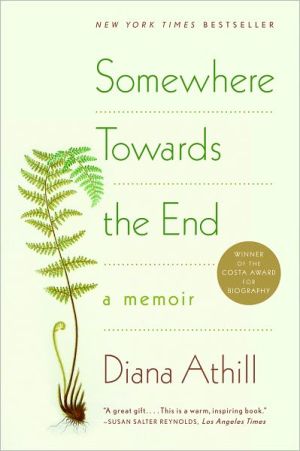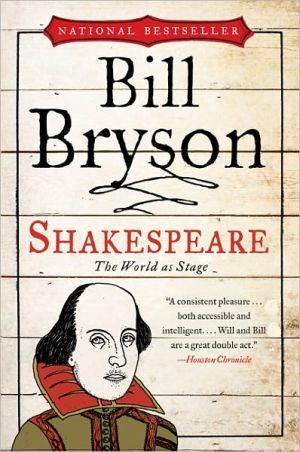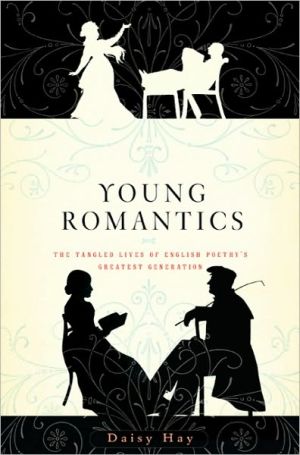William Golding: The Man Who Wrote Lord of the Flies
In 1953, William Golding was a provincial schoolteacher writing books on his breaks, lunch hours and holidays. His work had been rejected by every major publisher—until an editor at Faber and Faber pulled his manuscript off the rejection pile. This was to become Lord of the Flies, a book that would sell in the millions and bring Golding worldwide recognition.\ Golding went on to become one of the most popular and influential British authors to have emerged since World War II. He received the...
Search in google:
In 1953, William Golding was a provincial schoolteacher writing books on his breaks, lunch hours and holidays. His work had been rejected by every major publisher—until an editor at Faber and Faber pulled his manuscript off the rejection pile. This was to become Lord of the Flies, a book that would sell in the millions and bring Golding worldwide recognition. Golding went on to become one of the most popular and influential British authors to have emerged since World War II. He received the Booker Prize for the novel Rites of Passage in 1980, and the Nobel Prize for Literature in 1983. Stephen King has stated that the Castle Rock in Lord of the Flies continues to inspire him, so much so that he named his entertainment company after it and has placed the Golding novel prominently in his novels Hearts in Atlantis and Cujo. Golding has been called a British Vonnegut—disheveled and darkly humorous, perverse when it would have been easier to be bitter, bitter when it would have been easier to be lazy, sometimes more disturbing than he is palatable and above all fascinating beyond measure. Yet despite the fame and acclaim, the renowned author saw himself as a monster—a reclusive depressive ruled by his fears and a man who battled alcoholism throughout his life. In addition to being a schoolteacher, Golding was a scientist, a sailor and a poet before becoming a bestselling author, and his embitterment and alienation, his family, the women in his past, along with his experiences in the war, inform his work. This is the first book to unpack the life and character of a man whose entire oeuvre dealt with the conflict between light and dark in the human soul, tracing the defects of society back to the defects of human nature itself. Drawing almost entirely on materials that have never before been made public, John Carey sheds new light on Golding. Through his exclusive access to Golding’s family, Carey uses hundreds of letters, unpublished works and Golding’s intimate journals to draw a revelatory and definitive portrait. An acclaimed critic, Carey enriches crucially our appreciation of the literary work of Golding, bringing us, as the best literary biographies do, back to the books. And with equal parts lyricism and driving emotion, Carey brings to light a life that is extraordinary to the point of transcendent and a writer who trusted the imagination above all things. The New York Times Book Review - William Boyd John Carey has had unrestricted access to the Golding archive, and it is unlikely that this biography will ever be bettered or superseded. Moreover, Carey…writes with great wit and lucidity as well as authority and compassionate insight. Perhaps because he has had the opportunity of reading the mass of Golding's unpublished intimate journals, he brings unusual understanding to the complex and deeply troubled man who lies behind the intriguing but undeniably idiosyncratic novels.
William Golding\ The Man Who Wrote Lord of the Flies \ \ By John Carey \ Free Press\ Copyright © 2010 John Carey\ All right reserved.\ ISBN: 9781439187326 \ \ \ Beginning\ His earliest memory was of a colour, ?red mostly, but everywhere, and a sense of wind blowing, buffeting, and there was much light'. Together with this was an awareness, an ?unadulterated sense of self', which ?saw as you might with the lens of your eyes removed'. Whether this was actually a memory of his own birth, he is not sure. If so, it was remarkably trouble-free compared to his mother's experience of the same event. As soon as she had given birth to William Gerald Golding on 19 September 1911 she said to his father, ?That'll be all.'\ In his next memory he is eighteen months old, maybe less. He is in a cot with a railing round. It has been pulled next to his parents' brass-framed double bed because he is sick with some childish ailment, and feels a little feverish. It is evening. Thick curtains hang over the window, attached by large rings to a bamboo pole. A gas jet on the wall gives a dim light. He is alone in the room. Suddenly something appears above the right-hand end of the curtain pole. It is like a small cockerel, and its colour is an indistinct and indescribable white. It struts along the pole, its head moving backwards and forwards. It knows he is in the cot, and it radiates ?utter friendliness' towards him. He feels happy and unafraid. Just near the mid-point of the pole it vanishes and the friendliness goes with it.\ He hopes for it to return, but it does not. When his parents come to bed he tries to tell them about it, using the few words he knows. ?Thing', he says, or rather ?Fing', and ?Come back?' His father laughs, and assures him kindly that the thing won't come back, he's been dreaming. But he knows it was not a dream. Seeing it was not like dreaming, nor like waking. Its friendliness was ?like a whole atmosphere of natural love'. It seemed to come from ?the centre of all rightness'.\ Struggling to tell his parents about it brings him for the first time up against ?the brute impossibility of communicating'. When he grew up he came to wonder quite what he had seen: ?Was it an exercise of clairvoyance before growing up into a rationalist world stifled it?' But he remembered it as one of the most powerful experiences of his life, a glimpse of ?the spiritual, the miraculous' that he hoarded in his memory as a refuge from ?the bloody cold daylight I've spent my life in, except when drunk'.\ His first certainly dateable memory was his second birthday. He had been given a pair of white kid boots, and felt proud as he looked down and saw them projecting beyond the lace of his pinafore. The pride seems odd to him in retrospect, because it sorts ill with his lifelong antipathy to being tidy or smart or even clean. As an adult, he reflects, he washes or bathes only when the dirt starts to make him feel uncomfortable. But at two he was still, he thinks, ?half male and half female', so he took pride in adornment. He remembers, at about the same time, being pushed down the pavement at Marlborough, where they lived, by his nursemaid Lily. He is in a pushchair, not a pram, and dressed in a white silk frock. He is happy and excited because Lily has given him one of her hair-grips, a ring of tortoiseshell with a simple brass-wire clip across it, to pin back his shoulder-length blond curls. It makes him feel ?one of the right sort of people', that is, females. He thinks of girls as superior, beautiful beings, and understands their delight in being smooth, round, decorative and pretty. The hair-grip goes some way towards satisfying his deep desire to be one of them.\ The little boy who saw the white cockerel, and the little boy wearing Lily's hair-grip, both remained part of William Golding. The spiritual and the miraculous, and their collision with science and rationality, were at the centre of his creative life. That was the white cockerel's legacy. The hair-grip boy came to see that what is admired as manliness is often synonymous with destruction and stupidity, and he developed a sympathy with men whose sexual natures took them across conventional gender boundaries.\ © 2009 John Carey\ \ Continues...\ \ \ \ Excerpted from William Golding by John Carey Copyright © 2010 by John Carey. Excerpted by permission.\ All rights reserved. No part of this excerpt may be reproduced or reprinted without permission in writing from the publisher.\ Excerpts are provided by Dial-A-Book Inc. solely for the personal use of visitors to this web site. \ \
\ Publishers WeeklyIn this trenchant portrait, British critic Carey weaves masterful readings of Golding's work with intimate details about his life. Drawing on newly available materials-including Golding's never-before seen journal-Carey chronicles Golding's life from his relatively isolated and unhappy childhood, and his struggles as a young writer trapped in a schoolteacher position, to his winning of the Nobel Prize for Literature in 1983. Such early praise elevated Golding's first novel to heights that made the novel became better known than the novelist. Despite praise, Lord of the Flies was not an immediate bestseller. Golding's subsequent novels (among them The Inheritors and Pincher Martin) fared little better with critics and booksellers-until 1958, when literary critic Frank Kermode praised Pincher Martin as the work of a philosophical novelist whose great theme was the Fall of Man. As a writer-in-residence at Hollins College in America, Golding had finally earned enough success to be published in paperback. In spite of his glory, Golding remained sensitive throughout his life, battling fears of being alone in the dark, the supernatural, insects, and writing (as Carey elegantly enunciates, Golding's greatest fear was of not writing; he continued writing to postpone the terror of having nothing more to write). \ Copyright © Reed Business Information, a division of Reed Elsevier Inc. All rights reserved.\ \ \ \ \ Kirkus ReviewsWith the cooperation of his subject's daughter, Sunday Times chief book reviewer Carey (What Good Are the Arts?, 2006, etc.) produces the first major biography of Nobel Prize-winning novelist William Golding (1911-1993). The author is uniquely equipped to handle the task. He was the first person allowed access to Golding's immense archive of letters, journals and drafts, and he also knew Golding personally, having edited a Festschrift for his 75th birthday. The amount of detail is impressive, even staggering. After an unhappy career at Oxford and a stint in the Royal Navy during World War II, Golding became, like his father, a dissatisfied schoolteacher. He published several novels, including Lord of the Flies (his first book) in 1954, while laboring over class preparations and student essays. Literary celebrity finally freed him from his bondage in the classroom. Carey ably chronicles Golding's career-long relationship with Faber and Faber and editor Charles Monteith, and he describes Golding's long marriage, which was lubricated with alcohol, animated by world travel and punctuated by arguments, even violence. The author portrays an insecure Golding who revised ferociously but disdained research, often preferring the visions in his imagination to the inconvenience of fact. Although he professed to dislike publicity and fame, Golding reveled in it as well, accepting countless speaking engagements and tours all over the world, as well as numerous awards and honorary degrees. Despite Carey's enormous scholarship and access, however, much of this massive volume slips into hagiography. He invariably portrays Golding in the most positive way possible, dragging even the novelist's darkest demons-excessive drink, possible spousal abuse-into a forgiving if not flattering light. A tendentious but relentlessly thorough, historically important treatment.\ \ \ Dwight Garner…this plump and well-researched biography sits lightly in the lap; it reads like a picaresque novel…Running beneath Mr. Carey's biography…there is a lively counternarrative, one that portrays Golding, a man of constant sorrow, in a warm, fondly comic light. Part modern-day Job, part existential Charlie Brown, part long-suffering hero out of Bernard Malamud or Ian McEwan, Golding was a man for whom things constantly went wrong, yet he resolutely soldiered on.\ —The New York Times\ \ \ \ \ Wendy Smith…this intelligent, elegantly written and deeply empathetic biography reminds us that the factual basis of a writer's neuroses is less important than the imaginative use he makes of them. Golding took the darkness he found in his own heart and rendered it visible in novels that examine with pity and horror "the long nightmare which is the bedrock of being human."\ —The Washington Post\ \ \ \ \ William BoydJohn Carey has had unrestricted access to the Golding archive, and it is unlikely that this biography will ever be bettered or superseded. Moreover, Carey…writes with great wit and lucidity as well as authority and compassionate insight. Perhaps because he has had the opportunity of reading the mass of Golding's unpublished intimate journals, he brings unusual understanding to the complex and deeply troubled man who lies behind the intriguing but undeniably idiosyncratic novels.\ —The New York Times Book Review\ \
